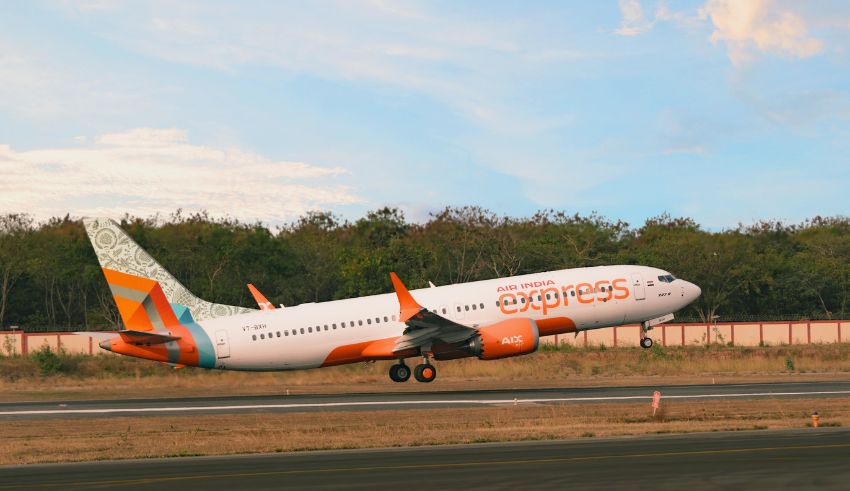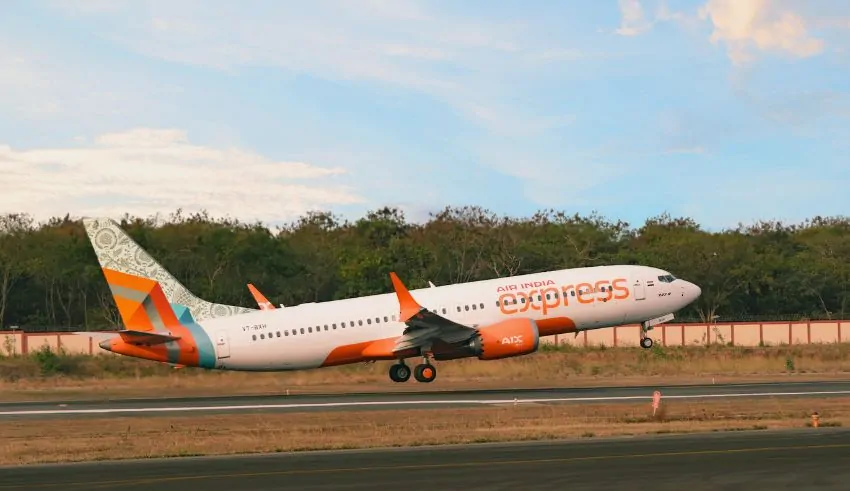

(C) Air India Express
Reacting to a bomb threat aimed at an Air India Express flight approaching the city-state, Singapore sent two F-15SG fighter pilots Tuesday night. The aircraft headed for Singapore, Flight AXB654, received a disturbing email claiming a bomb was on board.
Relating the incidents, the Singaporean Defence Minister, Dr. Ng Eng Hen said that fighter planes immediately from the Republic of Singapore Air Force (RSAF) intercepted the aircraft. The RSAF escorted the aircraft away from highly inhabited areas therefore ensuring the safety of those on the ground before guiding it safely to Changi Airport.
About 10:04 p.m., the jet landed without any problems. Part of the emergency response were turning on Ground-Based Air Defence (GBAD) systems of Singapore and Explosive Ordnance Disposal (EOD) personnel. Once landed, the flight was turned over to airport police for additional investigation and inspection.
Dr. Ng reassured the public on X (formerly Twitter) “the plane was handled with utmost care and safety procedures were followed.” He noted that although investigations on the email’s source or the alleged causes of the bomb threat are still under process, no more information has been found.
This occurrence highlights Singapore’s quick and orderly response to potential threats. Emphasizing the speed and accuracy of F-15SG combat planes, we focused on how fast things had to be done. The RSAF’s major objective was to exactly guide the aircraft clear of populated areas therefore lowering the risk to individuals and ensuring the airspace security.
The activation of ground-based air defense systems and the readiness of the EOD team exposed the tiered approach Singapore employs to handle such kinds of threats. Being a major international travel hub, Changi Airport in Singapore is particularly vulnerable to such events; yet, its prompt response shows that the country is ready to manage crises.
AFP also recorded an unrelated but equally alarming event whereby a bomb threat resulted in an emergency landing of an Air India flight headed for Chicago in Iqaluit, a far-off Arctic city in Canada. Said to be a false alarm, this incident occurred mere hours before the Singaporean disaster.
Rising diplomatic tensions between Canada and India resulted in both nations sacking key officials, hence feeding the bomb frenzy in Canada. Although authorities have not indicated any connection between the two bomb threats, the relative proximity of the occurrences begs issues about the possibility of raising tensions inspiring such threats.
Early on Tuesday after the bomb warning, the Air India flight destined for Chicago was diverted and landed at Iqaluit. Fortunately, there were no explosives on board; the flight was allowed to leave under inquiry.
Enhanced security systems and continuous research on bomb threats in Singapore and Canada have followed from their concerns. Globally looking at these risks, airports, airlines, and national security agencies are on great alert looking for their validity and most likely links to other events.
The event helps Singapore to appreciate the vital role military and security personnel perform in safeguarding its skies. The activation of fighter jets and air defense systems reveals how ready the Republic of Singapore Air Force is to react firmly and fast to prospective threats.
As investigations on the bomb threat on aircraft AXB684 explore whether this event is unusual or part of a more general trend, Singapore authorities would actively interact with abroad partners. Passengers and crew are safe presently; the crisis seems to have been controlled without any damage.
This event most definitely will result in further security measures at Changi Airport and on flights destined for Singapore as well as more communication analysis on probable hazards in the meantime. Policies are meant to quickly and effectively handle crises like this, hence the global aviation community is still highly under great alert.
Though the basic reasons of these events are yet unknown, the quick responses to the device insured passenger safety in Singapore and Canada, crew, and general public. Authorities in both countries are still researching the background of these hazards to stop any such incidents in the future.
Many fans and industry professionals saw Prithviraj Sukumaran's L2 Empuraan movie release on Thursday as a mixed success that gained…
Filipina teenager Alexandra Eala, 19 year old girl has achieved one of the biggest milestones in WTA season by defeating…
After waiting for a solid six years, Marvel Studios has divulged its next Avengers movie—Avengers: Doomsday. And the cast is…
Through software update Nothing OS 3.1 the company improves functionality of Phone (3a) and Phone (3a) Pro models. Global service…
China's electric vehicle (EV) giant BYD has officially taken over the global EV market, with a whopping revenue of 777…
The Japanese women’s curling team has a tough road to qualification for the 2026 Milan-Cortina Winter Olympics. Having silver and…
This website uses cookies.
Read More